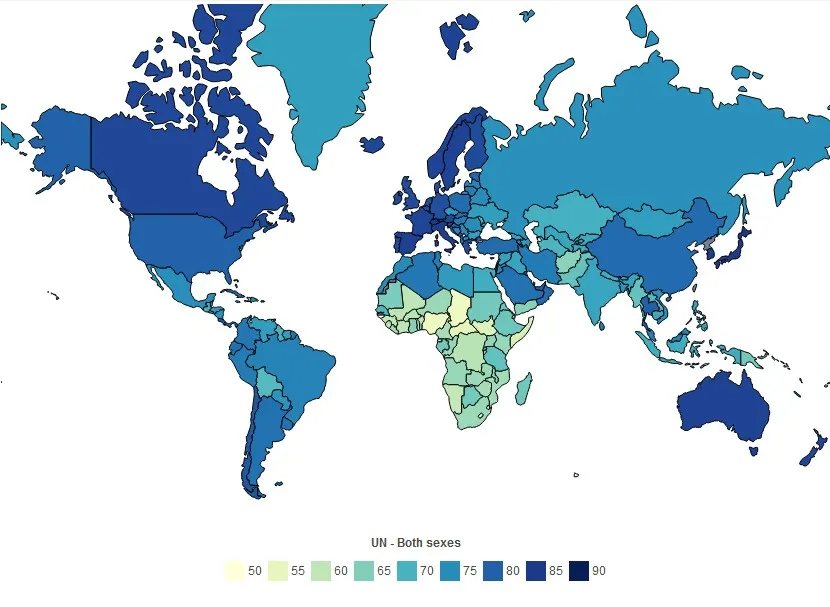Canada is a country that prides itself on providing a high standard of living and quality of life for its citizens. As evidence of this, Statistics Canada reports that the average life expectancy in the country is 81.16 years. This figure ranks Canada as having the sixth-highest life expectancy in the world. Here are some fascinating facts about life expectancy in Canada and how it compares to other countries.
What does Life expectancy mean?
Life expectancy is the average amount of time a person is expected to live based on various demographic and health factors. It is typically calculated from birth and is often used as a critical indicator of a population’s overall health and well-being. Many factors, including genetics, lifestyle choices, healthcare access, and environmental factors, influence life expectancy. It is an important metric that helps policymakers, researchers, and healthcare providers understand the health needs of different populations and develop strategies to improve health outcomes.
The World Map for Life Expectancy

- Canada’s life expectancy has been steadily increasing over time. In the 1960s, the average life expectancy was around 71 years, but by 2021, it has increased to 81.16 years.
- Women tend to have a higher life expectancy than men in Canada. As of 2021, the average life expectancy for women is 83.4 years, while men’s is 78.9 years.
- Canada’s life expectancy is higher than that of the United States. Despite having a similar standard of living and healthcare system, the average life expectancy in the United States is only 77.3 years.
- Japan has the highest life expectancy in the world, with an average of 84.6 years. Switzerland, Spain, and Italy also rank higher than Canada in terms of life expectancy.
- Lifestyle factors such as diet, exercise, and smoking can significantly impact life expectancy. Canada is known for having a relatively healthy population, with high physical activity and low smoking rates.
- Access to healthcare is also an essential factor in life expectancy. Canada’s publicly funded healthcare system provides all residents access to essential medical services.
- Canada’s aging population is a significant challenge facing the country. As people live longer, there is a growing demand for healthcare services and long-term care facilities.
In conclusion, Canada’s high life expectancy is a testament to the country’s high standard of living, healthcare system, and healthy lifestyle habits. However, as the population ages, it will be necessary for the government and healthcare system to adapt to meet the growing demand for services.
Sources:
- Statistics Canada
- CBC News
- World Bank
- Health Canada
- CBC News